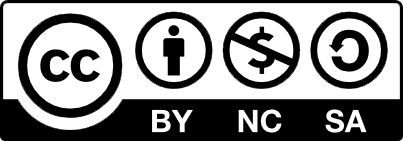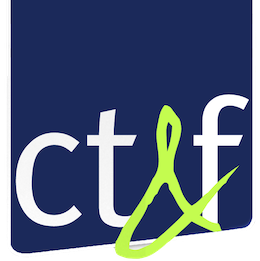Estimation of the reduction of produced water discharge through the application of relative permeability modifier
Abstract
The management of produced water is a significant environmental challenge, particularly considering the goal to achieve 'Water Neutrality' by 2045, which requires the entire elimination of discharges into water bodies. In Colombia, discharged water currently accounts for over 30% of total water production, approximately 80 million m3, which adversely affect various ecosystems. Moreover, the economic implications are substantial, as each barrel of produced water represents a significant quantity of unextracted oil, impacting the fields’ profitability. To address this issue, various stimulation methods have been used to mitigatewater production. This study is intended to assess the efficacy of these techniques in reducing water production and improving environmental management.
The Universidad Industrial de Santander, through its specialized services to the hydrocarbon industry, has conducted numerous assessments of relative permeability modifier (RPM) treatments across diverse scenarios and conditions. These evaluations have revealed high reduction in water permeabilities of up to 90%, effectively curbing water contributions from producer wells. This approach not only yields tangible benefits for companies by averting treatment costs, but also translates into environmental benefits through reduced water discharge.
In this study, we leverage this expertise to assess the potential impact of RPM treatments on water production. By analyzing changes in relative permeability curves via reservoir simulation, we aim to estimate the prospective decrease in water production and, consequently, the reduction in oil industry discharges in Colombia prior to a widespread implementation of this technique.
References
Ahmed, A. A., Saaid, I. M., Sambo, C., Shafian, S. R. M., & Hamza, M. F. (2023). Experimental investigation and numerical simulation of relative permeability modifiers during water shut-off. Geoenergy Science and Engineering, 230, 212095.. https://doi.org/10.1016/j.geoen.2023.212095.
Alfarge, D. K., Wei, M., & Bai, B. (2017). Numerical simulation study of factors affecting relative permeability modification for water-shutoff treatments. Fuel, 207, 226-239. https://doi.org/10.1016/j.fuel.2017.06.041.
Al-Azmi, A. A., Abdul-Aziz, W. J., & Al-Yaqout, T. A. (2023, June). Polymer Water Shut-Off Design and Efficiency Evaluation Based on Experimental Studies. In SPE International Conference on Oilfield Chemistry. (p. D021S008R005). SPE. https://doi.org/10.2118/213875-MS.
Al-Taq, A., Alrustum, A., Alfakher, B., & Al-Ibrahim, H. (2021, December). Relative Permeability Modifiers as a Chemical Means to Control Water Production in Oil and Gas Reservoirs. In SPE Middle East Oil and Gas Show and Conference (p. D041S044R006). SPE. https://doi.org/10.2118/204692-MS.
Al-Taq, A. A., Nasr-El-Din, H. A., Saudi, M. M., & Sierra, L. (2008, February). Potential Damage Due to Relative Permeability Modifiers: Laboratory Studies and A Case History. In SPE International Conference and Exhibition on Formation Damage Control (pp. SPE-112458). SPE. https://doi.org/10.2118/112458-MS
Barrufet, M. A., & Ali, L. (1994, April). Modification of relative permeability curves by polymer adsorption. In SPE Latin America and Caribbean Petroleum Engineering Conference (pp. SPE-27015). SPE. https://doi.org/10.2118/27015-MS
Botermans, C. W., van Batenburg, D. W., & Bruining, J. (2001, May). Relative permeability modifiers: myth or reality. In SPE European Formation Damage Conference and Exhibition (pp. SPE-68973). SPE. https://doi.org/10.2118/68973-MS.
Cardenas, J. C., Ariza, E., Torres, R., Patiño, J. C., Jaimes, M. G., Prada, A., ... & Galvis, H. (2024, February). Nano Relative Permeability Modifier (NanoRPM): A Promising Solution for Water Control in Colombian Oilfields. In SPE International Conference and Exhibition on Formation Damage Control (p. D021S009R001). SPE. https://doi.org/10.2118/217925-MS.
Diaz, G., Castillo, P., Villa, K., Sanchez, L., Mucci, M., Robles, J., ... & Peacock, H. (2009, May). Fracture conformance treatments using RPM: efficiency and durability evaluation. In SPE Latin America and Caribbean Petroleum Engineering Conference (pp. SPE-122913). SPE. https://doi.org/10.2118/122913-MS.
Ecopetrol. Portal, Eficiencia operativa en el manejo del agua. [Citado 10/06/2023]. https://www.ecopetrol.com.co/wps/portal/Home/sostecnibilidad/ambiental/gestion-integral-del-agua/manejo-agua
Escobar Acosta, V. D., Sánchez Rosero, O. I., Restrepo, D. P., & Lopera, S. H. (2004). Nueva metodología de laboratorio para evaluar la efectividad de tratamientos de permeabilidad relativa. Energética. https://repositorio.unal.edu.co/bitstream/handle/unal/36331/24002-83980-1-PB.pdf?sequence=1
Grupo Ecopetrol. (2022). Informe Integrado de Gestión (2022). https://files.ecopetrol.com.co/web/esp/cargas/ecopetrol-rigs-2022-esp.pdf.
Mesa, S. L., Orjuela, J. M., Ramírez, A. T. O., & Herrera, J. A. S. (2018). Revisión del panorama actual del manejo de agua de producción en la industria petrolera colombiana. Gestión y Ambiente, 21(1), 87-98. https://doi.org/10.15446/ga.v21n1.69792
Ortega, G. E. Evaluación de un modificador de permeabilidad relativa (MPR), en el medio poroso con crudo extrapesado (Doctoral dissertation). http://saber.ucv.ve/bitstream/10872/15887/1/TRABAJO%20ESPECIAL%20DE%20GRADO.pdf
Peano, J., Ramirez, R., Eoff, L., & Dalrymple, D. (2007, October). Reducing Water Production from Fractured Wells in the Cuenca de Burgos Field of Mexico. In ACIPET XII Technical Colombian Petroleum Congress, Bogota, Colombia (pp. 23-26). https://www.researchgate.net/publication/241787765_Conformance_While_Fracturing_Technology_Used_to_Reduce_Water_Production_in_North_Mexico
Portwood, J. T. (2005, April). The Kansas Arbuckle formation: performance evaluation and lessons learned from more than 200 polymer-gel water-shutoff treatments. In SPE Oklahoma City Oil and Gas Symposium/Production and Operations Symposium (pp. SPE-94096). SPE. https://doi.org/10.2118/94096-MS.
Prada, A. (2021). Revisión de las tecnologías para el tratamiento de aguas de producción petrolera para su aprovechamiento en el riego de cultivos. [Monografía, Fundación Universidad de América]. https://repository.uamerica.edu.co/bitstream/20.500.11839/8396/1/823171-2021-I-GA.pdf
Prado, M., Reyna, M., Rauseo, O., & Ferreira, I. (2009, May). Evaluation of the effect of oil viscosity on the disproportionate permeability reduction of a polymeric gel used for controlling excess water production. In SPE Latin America and Caribbean Petroleum Engineering Conference (pp. SPE-121499). SPE. https://doi.org/10.2118/121499-MS
Rodriguez, E., Duarte, C., Martinez, W., León, J., Ortega, A., Lastre, M., ... & Navarro, C. (2011, June). Selective Stimulation and Water Control in High-Water-Cut Wells: Case Histories from Upper Magdalena Valley Basin in Colombia. In SPE European Formation Damage Conference and Exhibition (pp. SPE-144803). SPE. https://doi.org/10.2118/144803-MS
Salman Hayatullah, M., Ridwan, R., Raihan, R., Meifresia, L., Kurniawan, H., & Napitupulu, B. H. (2015, October). Relative permeability modifier (RPM) as chemical diverter in bullhead matrix acidizing treatment. In SPE Asia Pacific Oil and Gas Conference and Exhibition (pp. SPE-176100). SPE. https://doi.org/10.2118/176100-MS.
Seright, R. S., Liang, J., Lindquist, W. B., & Dunsmuir, J. H. (2002). Characterizing disproportionate permeability reduction using synchrotron X-ray computed microtomography. SPE Reservoir Evaluation & Engineering, 5(05), 355-364. https://doi.org/10.2118/79717-PA
Vera-Parra, N. F., Marciales-Caro, L. J., Otero-Paternina, A. M., Cruz-Casallas, P. E., & Velasco-Santamaría, Y. M. (2011). Impacto del agua asociada a la producción de una explotación petrolera sobre la comunidad fitoperifítica del rio Acacias (Meta, Colombia) durante la temporada de lluvias. Orinoquia, 15(1), 31-40. https://dialnet.unirioja.es/descarga/articulo/5441072.pdf
Wang, J., Zhu, X., Guo, H., Gong, X., & Hu, J. (2011). Synthesis and behavior evaluation of a relative permeability modifier. Journal of petroleum science and engineering, 80(1), 69-74. https://doi.org/10.1016/j.petrol.2011.10.013.
Downloads
Copyright (c) 2024 CT&F - Ciencia, Tecnología y Futuro

This work is licensed under a Creative Commons Attribution-NonCommercial-ShareAlike 4.0 International License.

| Article metrics | |
|---|---|
| Abstract views | |
| Galley vies | |
| PDF Views | |
| HTML views | |
| Other views | |











